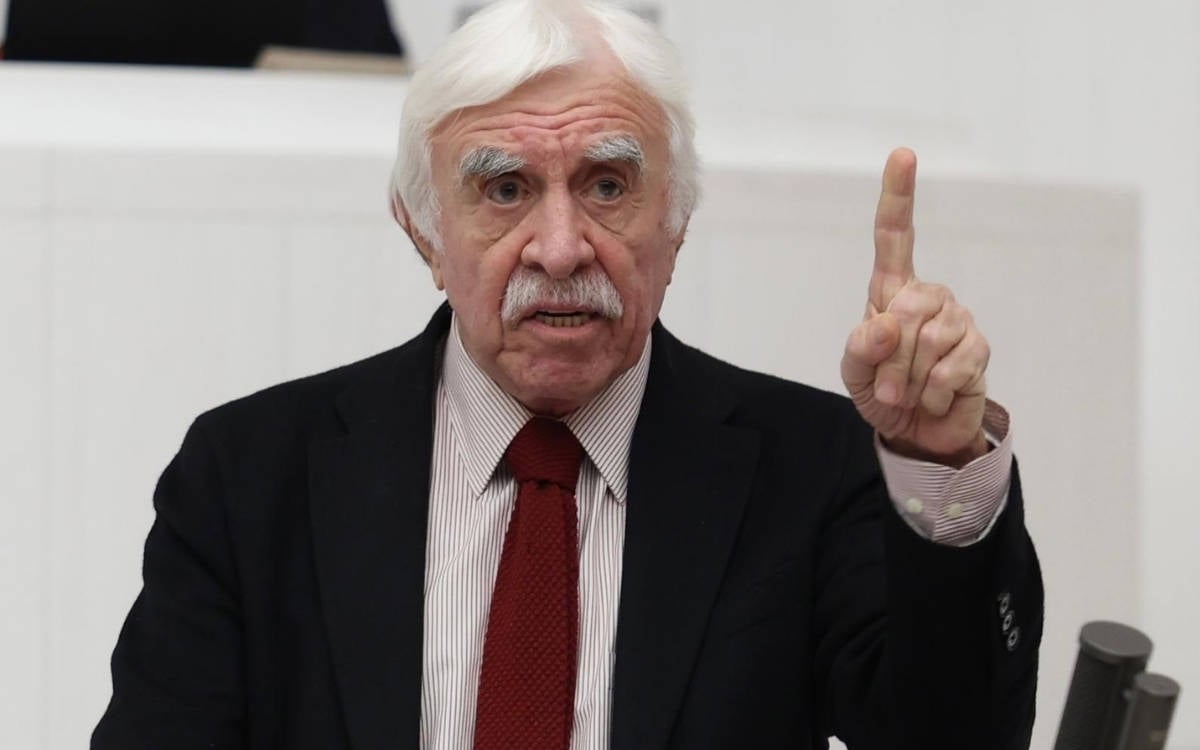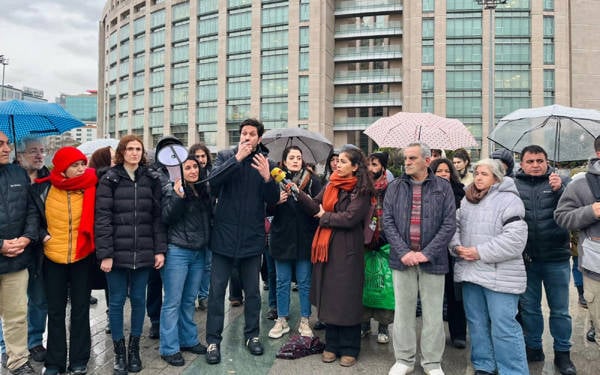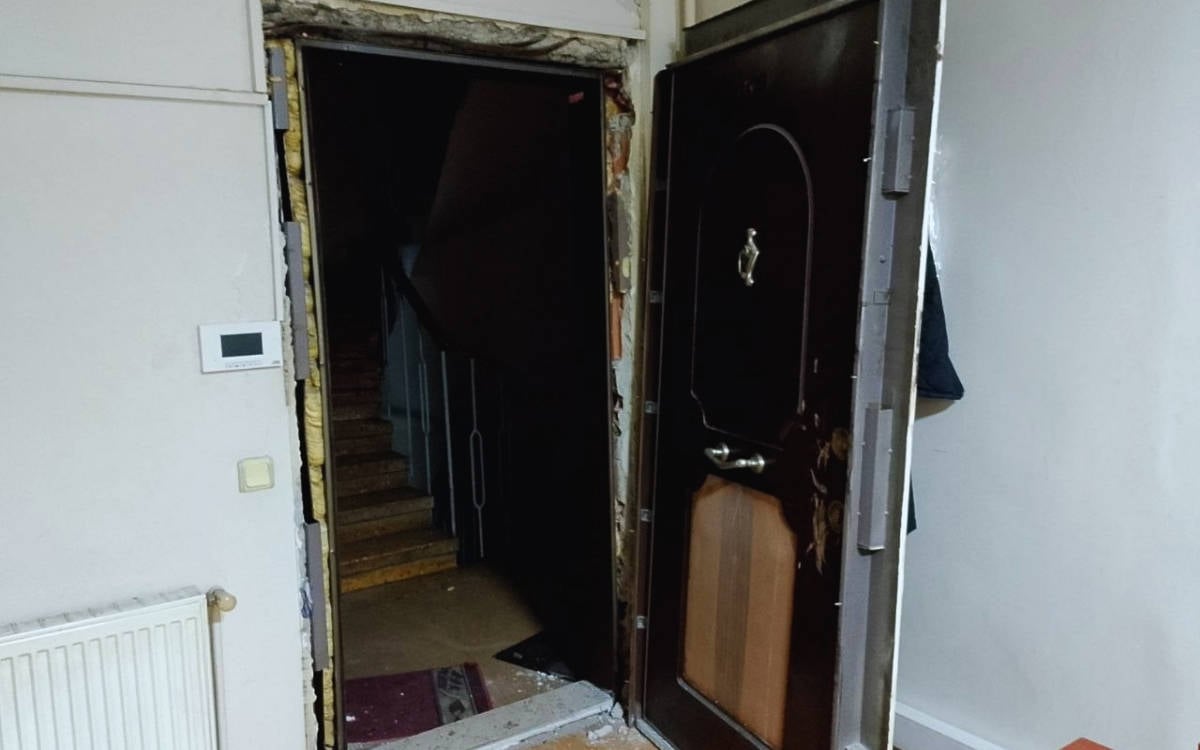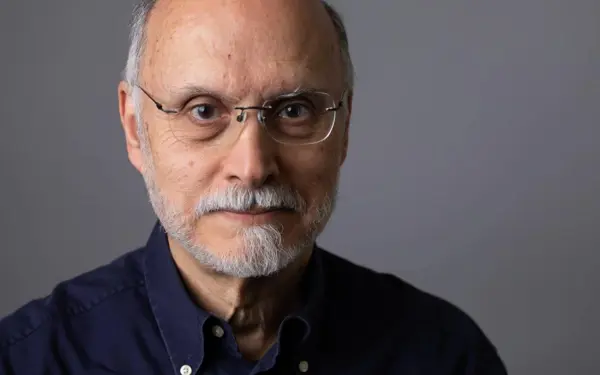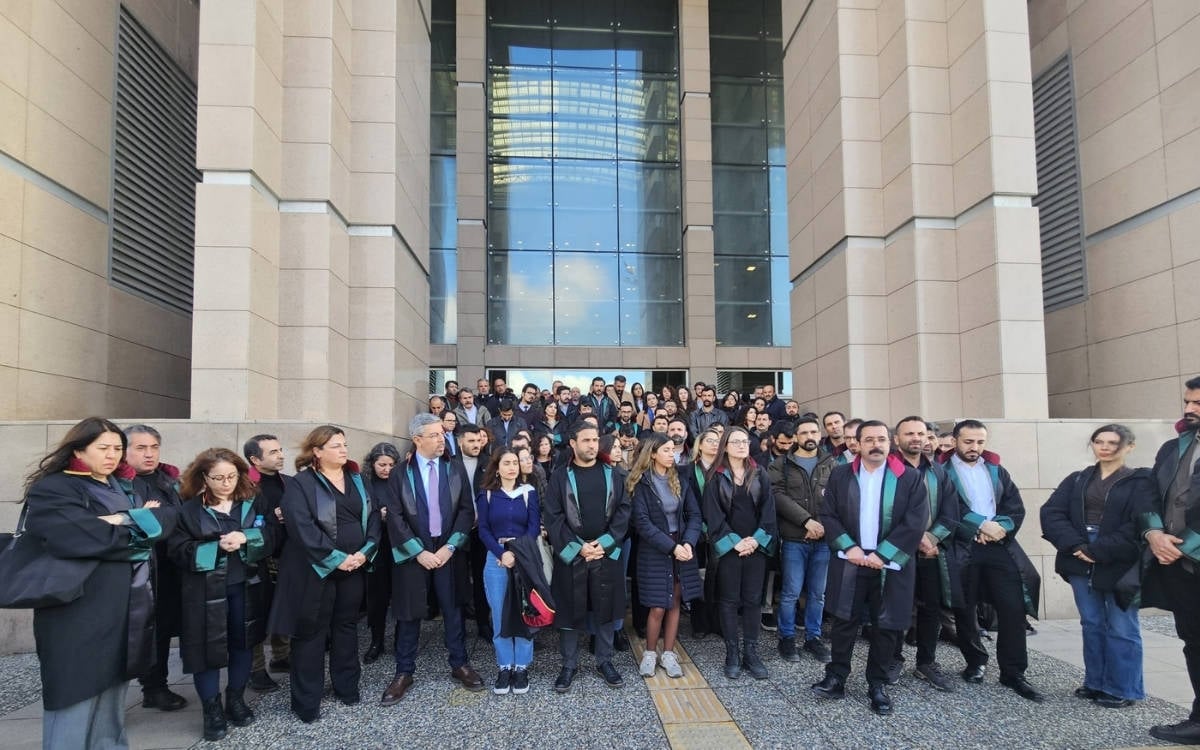Click to read the report in Turkish
"Ecology Journalism Project" round table meeting organized in order to strengthen the ties between the local press and the non-governmental organizations in Çanakkale opened with the speech of Nazan Özcan from Independent Communication Network/bianet.
In the meeting organized in Yalı Han in Çanakkale Özcan said the aim of the meeting was to strengthen the ties between the ecology organizations, the local-national press, and the environment organizations/institutions in Çanakkale and then invited the environment activists and then journalist Özgür Gürbüz to speak.
Özgür Gürbüz took his turn after representatives and activists of the environmental organizations in Çanakkale introduced themselves and he told the story of how he started journalism as an environment correspondent and that he was now writing a column per week on environmental problems in Birgün daily.
Specializing in ecology journalism
Gürbüz discussed and tried to find the answers to questions such as what ecology journalists try to do, in which fields they want to specialize and what it means for an ecology correspondent to become an expert.
He said, "When we say ecology journalism we are setting the bar high. There is in fact a difference between environmental journalism and ecology journalism. Specializing in ecology journalism is demanding. Ecology stands at a different place within environmental struggles. Ecology, by definition, is the science examining the relations of all living creatures with each other and with their environment.
"We as journalists are trying to unfold the damages made on the environment and in a way to struggle against this. Ecology journalism is different from other fields of expertise in journalism. In fact, we are making translations for an entity that cannot talk. We are doing interpretation for trees, for insects, for rivers.
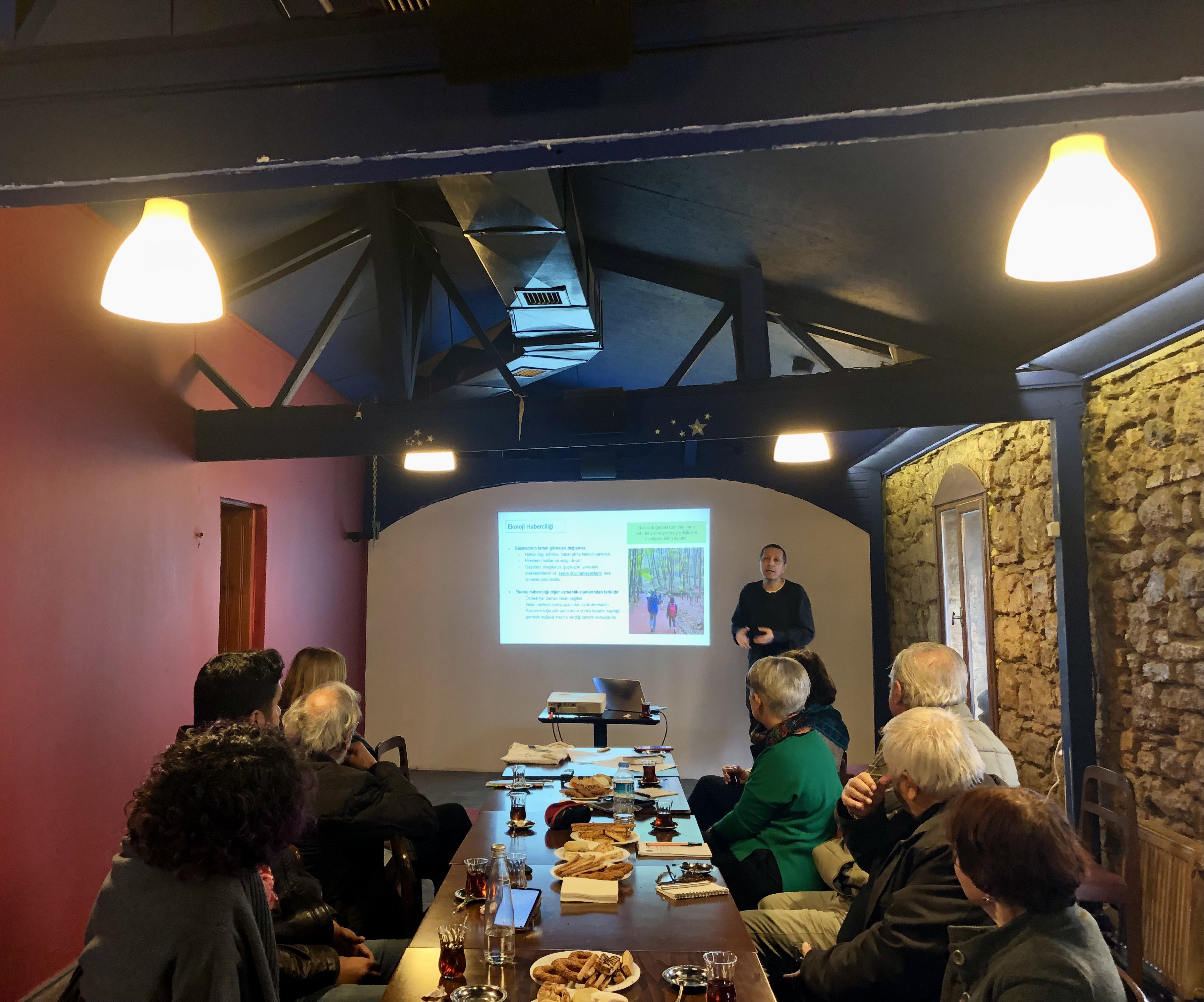
"The agent is not always a human"
"I would like to talk here a little about the expression "it is not a problem only of a few trees," which was used with good intention during the Gezi protests. In fact, the problem was exactly about a few trees. Someone who is struggling for creatures that cannot talk is kind of a 'holy person anyhow. The ecology struggle is very comprehensive as far as I am concerned. During the Gezi protests, what was happening was what should happen exactly, the right of a few trees were being defended."
Gürbüz mentioned that in ecology journalism, the agent is all living creatures and their right to live. He listed where ecology news is different from other news:
* The agent is not always a human being
* You should avoid the human-centered point of view.
* It is close to advocacy because the source is usually the result that humans cause in nature.
Environment journalism from the past to today
Gürbüz said that the interests, point of view and target group could influence the language and content of the report. In relation to different expressions used in the struggles, namely environment, ecology, or green he said that all could be used in reporting if your news outlet allows for it.
Gürbüz said that it was easier to do environment journalism in Türkiye in the past since in the past the public directly had a say on the issues affecting the environment, but now the capital structure and the political structure of Türkiye had changed.
Gürbüz also gave examples of how environmental journalism changed from the past to today.
"The scope of the environmental issues became broader. The intensity of censorship and auto-censorship increased. Digital platforms and social media started to be used effectively. The increase in the number of people using these mediums is of course good. Especially for overcoming censorship. However, at the same time, there can be a drop in our rate of access to 'reliable news.'
"Speed should not be our first criterion for the news, it should be to report news correctly. Let us read it 10 minutes later, but let us read the correct news. Another advantage of digitalization is that you can reach people at the other end of the world also immediately.
"Access to official data became more difficult"
"On the other hand, the 'cost' of specializing increased for journalists. Since there are limited human resources, a journalist who wants to specialize in one subject is having difficulty. Journalists making environmental news have to take up other issues also.
"And access to official data became more difficult. Now you have to pressure the institutions in order to take their data. When you pressure, you can either get a response. Or as a journalist, you can include in your report that you asked for the information but were not given. In fact, everybody should be doing this so that we can be successful."
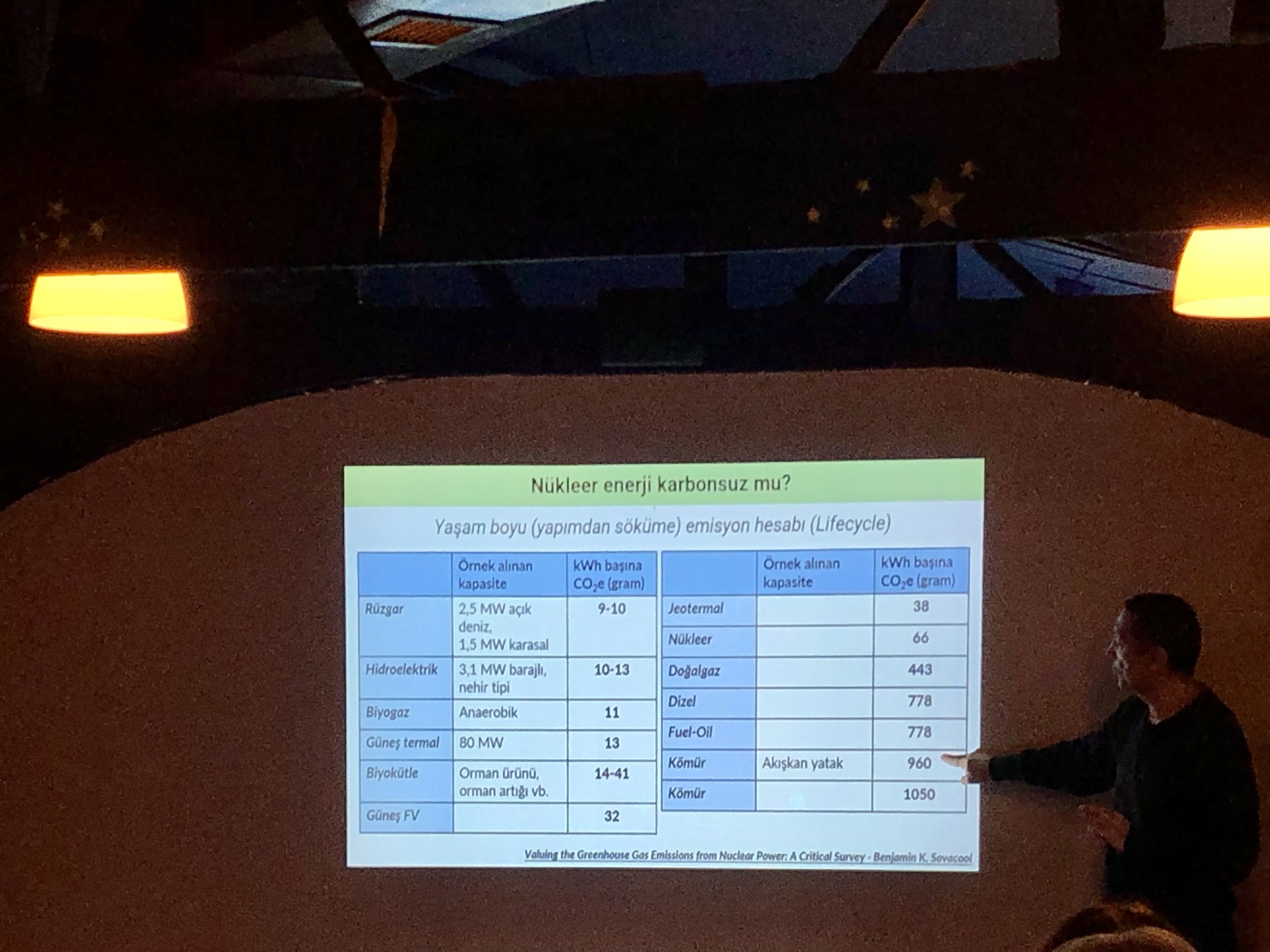
Newspaper or a walking voice recorder?
Gürbüz said that a journalist who wants to protect the public should not report news only by recording and should be careful about the following: Taking people's opinions, giving the parties a say, and eliminating information that is not correct.
Also commenting on the discussions on if a journalist should be impartial, or should a correspondent make comments, Gürbüz said that experienced correspondents had the right to give the correct information. For instance when reporting someone who is saying that 'nuclear power plants are cheap' the information should be added that the cost of such power stations is not cheap.
Scope of ecology journalism
Gürbüz said that the scope of ecology journalism covers the following:
* Animal rights,
* Natural areas, species,
* Climate crisis, energy,
* Economic activities that affect nature, consumption society
* Air, soil, and water pollution.
Gürbüz closed his speech in the first session saying "As environment/ecology journalists we are covering the areas that humankind is trying to dominate.
"The voice of local press not heard"
Following Gürbüz's speech, representatives of environmental organizations and platforms in the ecology struggle in Çanakkale spoke.
The following were discussed in the first session:
Tunahan Ünsal (Çanakkale Gündem Newspaper):
"We do not have much water resource left in Çanakkale other than our drinking water. I believe that we have to reach a certain level of welfare and also conscience in order to be able to talk about the environment. The presence of mine companies giving money to villagers can sometimes cause them to back their side and that makes the situation even more complicated. We are telling someone who has difficulty making a living environmental policy.
"Unfortunately the voice of the local press is not heard. We send the national press the necessary information and documents but they may not be interested in it and our reports are overlooked. Environment organizations again call us and say "there is such an event here' but then some of them neither exchange information or documents nor even have good communication with us."
.jpg)
"The university cannot meet with the city"
Ali Dereli (İda Solidarity Association):
"Çanakkale University is unfortunately no more carry out any work in common with us. When I was a TEMA representative (TEMA: the Turkish foundation for combating erosion reforestation and the protection of natural habitats) I took the students to Kazdağları (Mount İda) by bus. Two other academicians took over after me but they were not able to continue due to pressures. And it became more difficult for us to reach the students."
Ekrem Akgül (İda Solidarity Association):
"I can tell how the university non-governmental organizations relations are with an example. Our association considers research on renewable energy sources important. There is a university here but does not mix into society.
"Doesn't the university have anything to say about the environmental problems in Çanakkale? We have always stood close to the university and we were open to cooperation, however, the university, unfortunately, cannot meet with this city.
Difficulty of contact with the young generation
Mustafa Dermanlı (Çanakkale Local Development Association):
"Our association is a young one in fact. We carried out a project on fishing activities in Bozcaada before. Now we are making a project on Bozcaada viniculture. We know that in Çanakkale some wind power stations caused large-scale environmental destruction in the last 10 years. They say that wind power plants are renewable energy, however, there is no single truth or single information.
"We have to see what is happening in the background. And of course, we have to care about our contact with the youth, we have to be able to meet with them."
"Our voice is not heard"
Nermin Tokgöz (İda Solidarity Association):
"Even though we are doing all that we can our voice is heard very little. For example, we went to the energy symposium organized by Yıldırım Holding in Karabiga in 2016 where they talked about thermal power stations in glowing terms with specially printed t-shirts and we took to the stage.
"When we were on stage we learned that Mediterranean folks lived in the region and we described the damages that the power station will give both to the folks and to all other living creatures. Through this action, we changed the perception there. In another conference somebody who was the CEO of the holding at the time told me, 'I have a presentation on greens, will you listen to it?' I was happy to hear that.
What should we be careful about in environmental news?
The second session of the meeting opened with Özgür Gürbüz talking about what to be careful about when reporting environmental news.
Gürbüz underlined that non-governmental organizations should use a language that everybody can understand when writing press bulletins.
He said, "Everything starts with you. It is important how you present the news, and which photographs you use. First, you have to make the journalist read your bulletin so that the event draws the attention of the journalist and motivates him/her to report your news."
Significance of data in ecology journalism
Gürbüz also touched upon the close relationship between ecology journalism and data and drew attention to the importance of mastering data in order to report the news correctly. He underlined that in line with the data, the error margin will be lower in the news, and also the answers to be given to climate deniers will be more concrete.
In order to draw attention to the importance of data in ecology journalism, Gürbüz talked about the 'net zero emission' target of Türkiye in 2053 announced in the Nationally Determined Contribution announced at COP27 and also about the extreme weather events in Türkiye according to the years. He explained that all information announced could be compared with other data.
Ecology concepts should be understandable
Gürbüz later talked about what ecology news should and should not include, giving examples from previous reports.
He also drew attention to the importance of explaining the concepts used in ecology news to the readers. He described his individual efforts in this respect:
"We cannot suppose where we talk about 'use of fossil fuels' in an article and the damage this causes in the environment, that people know what the definition of fossil fuels is. When I write fossil fuels, I usually write the following in parentheses 'oil, coal, natural gas.'Because we should never forget that someone could be reading such a report for the first time and hearing about this issue for the first time."
People's stories are important
Stating that climate news does not only consist of data, Gürbüz said life itself is full of people's stories and that problems that seem to the people as if they are distant can be made more comprehensible with such stories.
Gürbüz gave the example of one report he has written about the Afşin-Elbistan Thermal Power Plant. Here he met a newly married couple and the woman told him that all clothes were dirty with lamp black and that she warned him that she would get a divorce if her husband continued to work at the power plant.
Gürbüz said he believed that an issue such as a climate crisis could be made more comprehensible when told with people's stories.
"Need for cultural change"
The following were discussed in the second session of the meeting:
Ekrem Akgül (İda Solidarity Association):
"I noticed that there are things that we overlook in the press bulletins that we write after the examples Mr. Gürbüz gave. Yes, there are fossil fuels but what do they mean for us? We have hit the wall in all kinds of production, from agriculture to architecture. We are trying to reach clean food but it is not possible.
"There is an industry that is polluting the water, the air, and the soil. If we want a solution to any problem of nature, we cannot do it with environmentalism only. The problem lies in production types, in people's habits, and in consumption culture. We need a cultural change."
People's support in ecology struggles
Nermin Tokgöz (İda Solidarity Association):
"We do not get the support from the local press that we need. Our actions are not reported in most of the outlets. And sometimes we are told, "we are writing the report but it is not being published." And young people do not attend our events. We continue our struggle with a very limited number of people."
Aysun Erenalın (İda Solidarity Association):
"The press does not want information but press bulletins from us. They want us to write the report ourselves, and to add the photographs. How will they know then if I am exaggerating? Journalists should support us."
The language used
Mustafa Dermanlı (Çanakkale Local Development Association):
"We have to be careful with the language we use in environmental struggles. For example, the people who wage a struggle in the villages abstain from using the word 'organization.' We conducted a survey on a waste collection center. When there are expressions in the questions that put blame on the villagers, people abstain from answering the questions.
"Regarding press bulletins; when there is a four-page press bulletin, it is difficult that it will draw the attention of the journalist. Usually, the press bulletins do not have any emphasis, they do not have any expressions in bold. The associations should be careful about these. In fact, we have to be chasing the journalists."
Standing together
Reyhan Erdem (Kazdağı Protection Association):
"We started the struggle in 1997 reporting that the Çan Thermal power plant will be constructed and we established an environmental platform. In 2007 a second environment platform was formed. However, despite all the environmental problems, we have not been able to stand together as environmental organizations or as environment committees of mass organizations. We have to be able to stand together from now on.
"I am also in the women's movement since 1992. I remember those times, everyone would participate in the actions. Today we are not able to come together in such a strong way.
In the last part of the meeting, a discussion was made on how a common struggle can be waged in Çanakkale by ecologists and environmental platforms.
Participating organizations: İda Solidarity Association, Çanakkale Local Development Association, Çanakkale Olay Newspaper, Çanakkale Gündem Newspaper, Kazdağı Protection Association. |
* The IPS Communication Foundation/bianet's "Ecology Journalism Project" is supported by Oslo Metropolitan University Journalism and Media International Center (JMIC). As part of the project, we have so far organized a climate journalism workshop in İstanbul and published an article serious about ecology. We organized meetings in Mersin, Rize, and Çanakkale. (TY/PE)




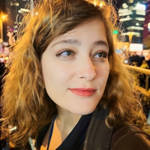
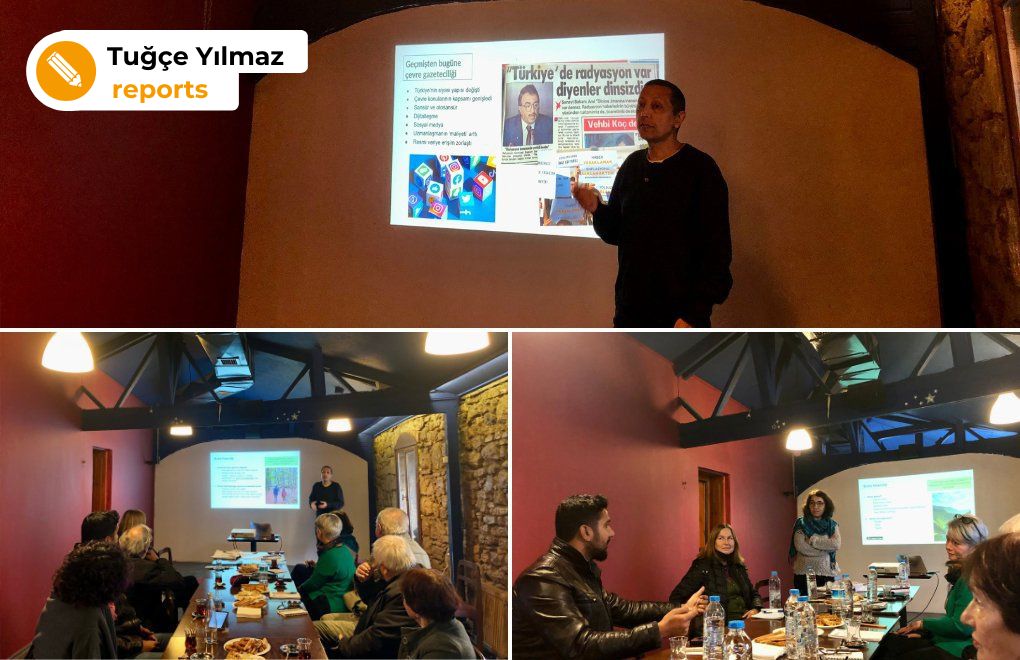
.jpg)
